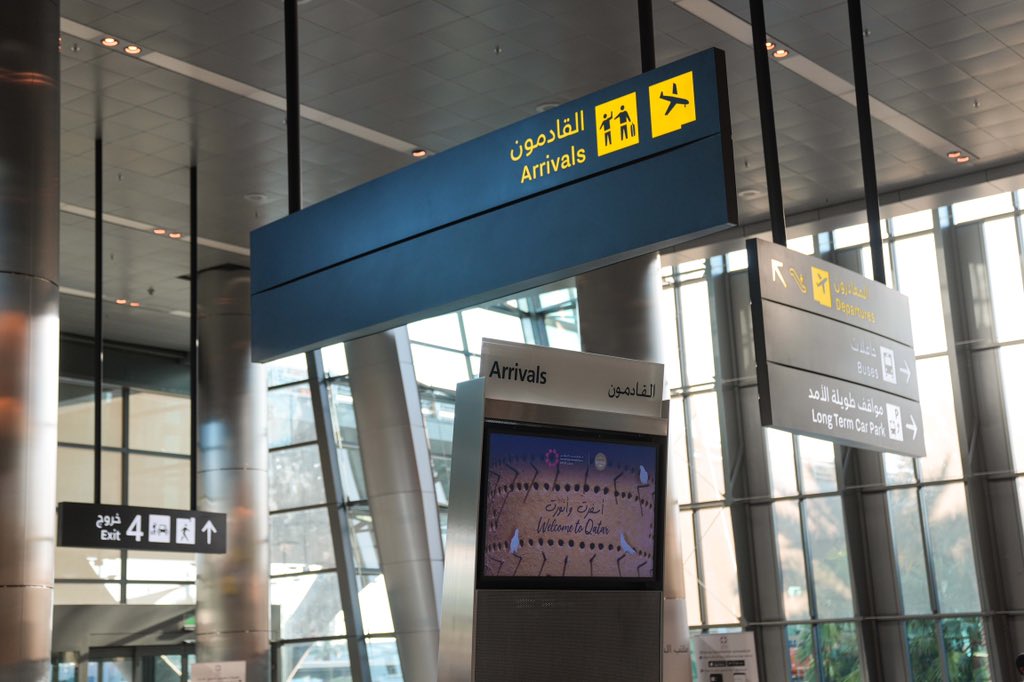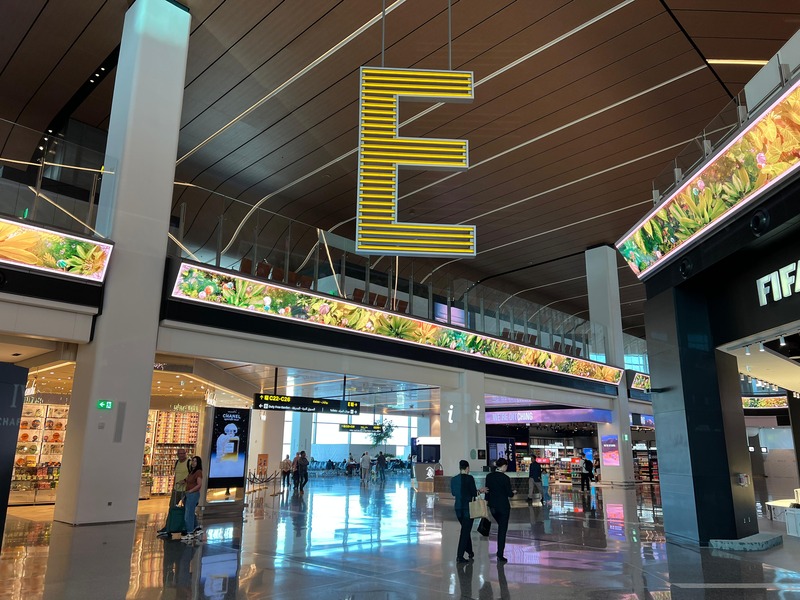
Baggage claim at Hamad International Airport is designed to ensure a seamless and stress-free experience for travelers. The process is well-organized, with clear instructions and support available at every step.
Finding Your Baggage Belt

Upon arrival, your checked baggage will be delivered to one of the belts in the baggage claim area. To locate your designated belt, you can refer to the large information display near Belt 3, which provides flight-specific belt assignments. Each individual belt also has its own display indicating the flights it serves.
For added convenience, travelers can use the airport planner by entering their flight number to quickly find their baggage belt. This planner is accessible via the airport's website or through mobile apps, allowing you to plan ahead and save time.
Oversized or Fragile Items

If you have checked in oversized or fragile items such as wheelchairs, child seats, or musical instruments, these will be delivered separately via special conveyors. Belt A is situated between Belts 2 and 3, while Belt B is located between Belts 7 and 8. It is advisable to securely pack fragile items in hard-shell luggage to minimize damage during transit. Additionally, labeling these items clearly as "Fragile" can help ensure they are handled with extra care.
Pets and Animals

Traveling with pets or other animals requires special handling. Airline representatives will personally deliver animals to you in the baggage claim area. For assistance or inquiries, you can visit the Airline Baggage Service office near Belt 1. It's important to check with your airline beforehand for specific requirements and documentation needed for traveling with pets, such as health certificates and travel crates.
Trolleys and Porters

Free baggage trolleys are available throughout the baggage claim area for passenger convenience. If additional help is needed, porters are on hand to assist with luggage for a fixed fee. Special assistance travelers, Al Maha customers, and unaccompanied minors are eligible for complimentary porter services. This service ensures that those who need extra support can navigate the airport with ease.
Prohibited Items

Passengers are reminded not to include prohibited items in their luggage. These items will be confiscated and cannot be retrieved later. For detailed information on prohibited items, travelers can consult the Security & Customs page on the airport's website. Common prohibited items include sharp objects, flammable liquids, and certain types of batteries. It's crucial to pack wisely to avoid any issues during security checks.
Lost or Damaged Baggage

In case of lost or damaged baggage, passengers should immediately contact an airline representative at the nearest information desk or visit the Baggage Services Office located behind Belt 1. Claims for lost or damaged baggage must be filed promptly, and recovered items are held for up to 30 days before being donated if unclaimed. Keeping a record of your baggage contents and having travel insurance can help mitigate any losses.
Additional Services and Tips

- Baggage Wrapping: For added security, baggage wrapping services are available at the airport. This can protect your luggage from scratches and tampering.
-
Baggage Storage: If you need to store your luggage temporarily, the airport offers secure storage facilities. This is useful for travelers who have a long layover or need to explore the city before their next flight.
-
Travel Apps: Utilize travel apps to track your baggage and receive updates on flight schedules and baggage claim status. Some popular apps include TripIt and FlightAware.
-
Airport Facilities: Hamad International Airport offers a range of amenities, including restaurants, lounges, and duty-free shopping. Take advantage of these while you wait for your baggage.
-
Travel Documents: Ensure you have all necessary travel documents, such as your passport, visa (if required), and health insurance card. It's also a good idea to make digital copies of these documents and leave them with a trusted friend or family member in case of emergencies.
-
Airport Navigation: Familiarize yourself with the airport layout to avoid confusion. Hamad International Airport provides interactive maps and guides on its website and through mobile apps.
-
Language Support: If you need assistance in a language other than English or Arabic, many airport staff are multilingual. Don't hesitate to ask for help if you need it.
Useful Tips from Travel Experts

- Label Your Luggage: Clearly label your luggage with your name, contact information, and destination to prevent mix-ups.
- Pack Smart: Consider packing essentials like a change of clothes and important documents in your carry-on luggage in case your checked baggage is delayed.
- Arrive Early: Plan to arrive at the airport with plenty of time to spare before your flight to account for any unexpected delays.
- Stay Informed: Keep an eye on flight updates and baggage claim status through airport screens and mobile apps.
- Travel Insurance: Consider purchasing travel insurance that covers baggage loss or damage for added peace of mind.
Hamad International Airport ensures that all aspects of baggage handling are efficient and traveler-friendly, providing tools like QR codes and displays for navigation while offering personalized services for special needs. Whether you're traveling for business or leisure, the airport's comprehensive services aim to make your journey as smooth as possible.




















.jpg)

















.jpg)



.jpg)
.jpg)




.jpg)
















